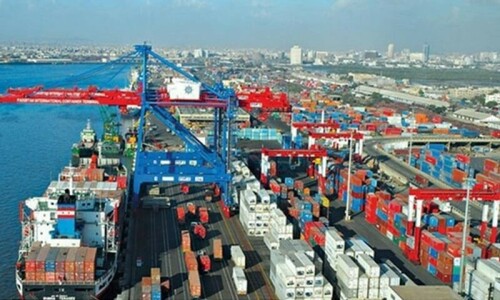ISLAMABAD: The Indus River System Authority (Irsa) has convened a meeting of its advisory committee on September 30 to finalise water availability estimates and set provincial water shares for the Rabi season starting October 1.
Irsa Chairman Rao Irshad Ali Khan will preside over the meeting, which will be attended by the Water and Power Development Authority (Wapda) members, Federal Flood Commission chairman and provincial irrigation and chief secretaries.
This will be a rare meeting of the Irsa advisory committee because it will be held without prior estimates of water availability for the Rabi crops. The provinces have been asked to come up with their estimates that will be firmed up by the advisory committee.
This is because the Tarbela dam could not be filled to capacity due to construction work and an accident that caused a loss of human lives and the subsequent reduction by the water regulator in provincial indents on August 22. The decision is, however, reported to have helped storage in reservoirs almost at the level of the same period last year.
All main rivers — Indus, Jhelum, Chenab, Ravi and Sutlej — are flowing normal, according to the Federal Flood Commission, which said Tarbela and Mangla reservoirs are currently at elevations of 1,515.48 feet and 1,216.60 feet, respectively. The two reservoirs are 34.52 feet and 25.40 feet below their respective maximum conservation levels of 1,550 feet and 1,242 feet, respectively.
The combined live storage capacity of Tarbela, Chashma and Mangla reservoirs was recorded at 10.172 million acre feet (MAF) compared to last year’s 10.581MAF. The country’s irrigation requirement for Rabi is estimated at 36MAF.
On August 22, Irsa had slashed water shares of Sindh by 27 per cent and Punjab by 14pc because of the ‘inability’ of Wapda to conserve water for irrigation purposes despite the availability of sufficient water.
According to Irsa, it had advised Wapda to take advantage of substantial river flows and conserve higher quantities of water. Irsa pointed out that weather conditions had become unpredictable and, therefore, storage should be built until August 20 at a higher scale instead of one foot per day.
Wapda did not oblige, citing safety precautions. As a result, substantial water quantities had to be allowed to flow downstream. As a consequence, the dam could not be filled to capacity despite the availability of water.
The Rabi season begins in October-December and harvested in April-May. Its major crops include wheat, gram, lentil, tobacco, rapeseed, barley and mustard.
Published in Dawn, September 27th, 2016














































Dear visitor, the comments section is undergoing an overhaul and will return soon.